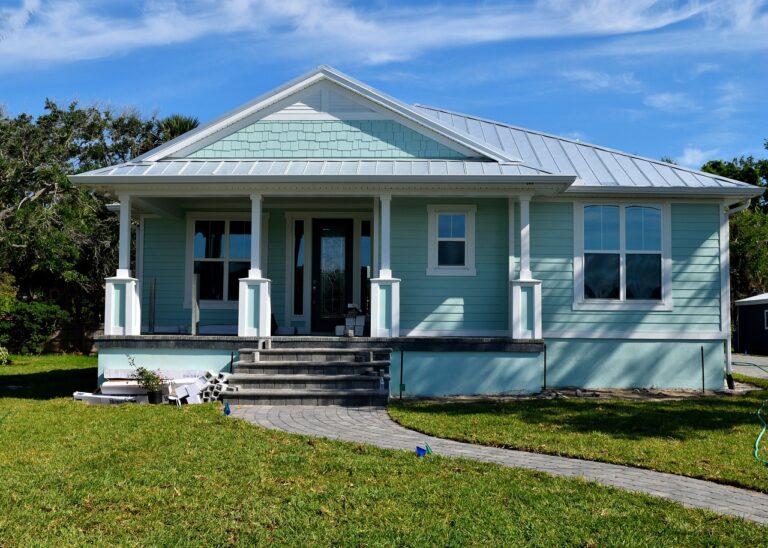Navigating the Evolving Landscape of HVAC Efficiency
In the dynamic world of HVAC systems, changes and advancements are always on the horizon. As of 2023, Florida has witnessed updates to the Seasonal Energy Efficiency Ratio (SEER) ratings, impacting the way we measure the efficiency of air conditioning systems. In this blog post, we’ll explore the significance of these SEER rating changes and how they may influence your choices when it comes to cooling your Florida home.
The 2023 SEER rating changes in Florida usher in a new era of energy efficiency for air conditioning systems. Whether you’re considering a system replacement or installing a new one, understanding these changes empowers you to make informed decisions that align with your comfort needs, budget considerations, and environmental consciousness. As technology evolves, staying attuned to efficiency standards ensures that your HVAC choices contribute to a sustainable and comfortable living environment in the Sunshine State.
What is SEER?
SEER, or Seasonal Energy Efficiency Ratio, is a vital metric used to measure the efficiency of air conditioning systems. It represents the ratio of cooling output to the energy consumed over a typical cooling season, providing consumers with valuable insights into the system’s performance. The higher the SEER rating, the more efficient the system is in converting electricity into cooling power.
In the context of HVAC systems, SEER ratings play a crucial role in determining energy efficiency standards and guiding consumers in making informed choices. As of 2023, Florida has witnessed changes to SEER ratings, reflecting advancements in technology and a collective effort towards more sustainable and eco-friendly cooling solutions.
These changes in SEER ratings usher in a new era of energy efficiency for air conditioning systems in Florida, emphasizing the importance of staying updated on efficiency standards. Consumers navigating the market for system replacements or new installations can benefit from understanding these alterations, ensuring that their HVAC choices align with comfort needs, budget considerations, and contribute to a more environmentally conscious approach to cooling in the Sunshine State.
Increased Minimum SEER Ratings
The 2023 SEER rating changes in Florida bring about increased minimum SEER ratings, marking a significant shift in the efficiency standards for air conditioning systems. SEER, or Seasonal Energy Efficiency Ratio, is a key benchmark that measures the efficiency of cooling equipment. The higher the SEER rating, the more energy-efficient the system is.
With the updated standards, there is a heightened emphasis on enhancing the energy efficiency of air conditioning units. The increased minimum SEER ratings reflect technological advancements and a commitment to sustainability in the HVAC industry. This shift is designed to elevate the overall efficiency of cooling systems, resulting in reduced energy consumption and environmental impact.
Homeowners and businesses in Florida can expect a positive impact on their energy bills as a result of these changes. The increased minimum SEER ratings not only contribute to cost savings but also align with broader efforts to promote eco-friendly and energy-conscious practices. Staying informed about these updated standards empowers consumers to make choices that prioritize efficiency, comfort, and environmental sustainability in their cooling systems.

Impact on System Efficiency
The 2023 SEER rating changes in Florida have a direct and significant impact on system efficiency for air conditioning units. SEER, or Seasonal Energy Efficiency Ratio, is a metric that quantifies the efficiency of cooling systems, and the updated standards emphasize a collective effort to enhance overall efficiency in the HVAC industry.
With increased minimum SEER ratings, air conditioning systems are now required to operate at higher efficiency levels. This means that newly installed or replaced units must meet or exceed these elevated standards, resulting in improved energy performance. The impact on system efficiency is notable, as higher SEER ratings signify a better conversion of electricity into cooling power, ultimately reducing energy consumption.
Homeowners and businesses in Florida can anticipate more efficient cooling systems that not only contribute to environmental sustainability but also lead to cost savings on energy bills. As technology evolves, these changes underscore the commitment to creating a more energy-conscious and eco-friendly landscape for HVAC systems in the Sunshine State. Staying aware of these impacts empowers consumers to make informed choices that prioritize efficiency and sustainability in their air conditioning investments.
Energy Savings for Florida Residents
The 2023 SEER rating changes in Florida herald a promising era of energy savings for residents across the state. SEER, or Seasonal Energy Efficiency Ratio, is a crucial metric in determining the efficiency of air conditioning systems. With the increased minimum SEER ratings, Florida residents can anticipate substantial energy savings in their cooling endeavors.
Higher SEER ratings require air conditioning units to operate more efficiently, converting electricity into cooling power with increased effectiveness. This directly translates to reduced energy consumption, leading to significant cost savings on residents’ energy bills. As newer systems adhere to elevated efficiency standards, the overall impact is a positive one for both consumers and the environment.
Florida’s warm climate often demands prolonged use of air conditioning, making energy efficiency a paramount concern. The 2023 SEER rating changes align with the state’s commitment to sustainability, offering residents an opportunity to invest in cooling systems that not only enhance comfort but also contribute to responsible energy consumption practices. Embracing these changes ensures that Florida residents can enjoy a comfortable indoor environment while reaping the benefits of substantial energy savings, marking a positive and eco-conscious shift in the realm of HVAC technology.
Environmental Benefits
The 2023 SEER rating changes in Florida bring not only energy savings but also significant environmental benefits. SEER, or Seasonal Energy Efficiency Ratio, serves as a pivotal metric in assessing the efficiency of air conditioning systems. With the increased minimum SEER ratings, there is a tangible positive impact on the environment.
Higher SEER ratings signify improved energy efficiency, meaning that air conditioning units will consume less electricity to deliver the necessary cooling. This reduction in energy consumption directly translates into a decrease in greenhouse gas emissions and a lower carbon footprint. As Florida adopts these updated efficiency standards, it aligns with broader initiatives aimed at fostering environmental sustainability.
The environmental benefits of the 2023 SEER rating changes extend beyond individual households to contribute to a collective effort in mitigating climate change. By investing in air conditioning systems that adhere to elevated efficiency standards, residents in Florida play a role in fostering a greener and more eco-friendly future. These changes not only bring about energy savings but also underscore the importance of responsible and sustainable practices in the realm of HVAC technology, positioning Florida as a leader in environmentally conscious cooling solutions.
Considerations for System Replacement
With the 2023 SEER rating changes in Florida, considerations for system replacement become paramount for residents looking to upgrade their air conditioning units. The increased minimum SEER ratings signify a shift towards more energy-efficient and environmentally friendly HVAC systems, prompting homeowners to assess their existing units.
One crucial consideration is the age of the current system. Older models with lower SEER ratings may not only operate less efficiently but also lack the advanced features and technologies available in newer, compliant systems. As technology evolves, replacing outdated units becomes a strategic move to benefit from enhanced efficiency and performance.
Budget considerations also play a significant role in the decision-making process. While newer, high-SEER-rated systems may require an initial investment, the long-term energy savings and environmental benefits often outweigh the upfront costs. Additionally, Florida residents may qualify for incentives, rebates, or tax credits aimed at encouraging the adoption of energy-efficient cooling systems.
Environmental consciousness is another key consideration. Upgrading to a system that meets or exceeds the 2023 SEER standards aligns with sustainable practices, contributing to reduced energy consumption and lower greenhouse gas emissions. By carefully weighing these considerations, Florida homeowners can make informed choices that prioritize efficiency, cost-effectiveness, and environmental responsibility in their air conditioning investments.
Cost Considerations
As Florida experiences the 2023 SEER rating changes, cost considerations become pivotal for residents contemplating air conditioning system upgrades. The increased minimum SEER ratings signify a commitment to energy efficiency, but the financial aspects of these changes must be carefully evaluated.
While newer, high-SEER-rated systems offer long-term energy savings, the initial investment can be a significant factor for homeowners. Assessing the budget for system replacement is crucial, considering not only the purchase price but also potential installation and maintenance costs. Exploring financing options, rebates, and incentives available in Florida can provide financial relief and make energy-efficient systems more accessible.
It’s essential to conduct a thorough cost-benefit analysis to determine the payback period for the investment. High-SEER-rated systems may have higher upfront costs, but their efficiency often translates into lower monthly energy bills over time. Understanding the potential return on investment and calculating the lifecycle cost of ownership aids homeowners in making financially sound decisions aligned with their budget constraints.
Moreover, residents should explore available financing programs or incentives aimed at encouraging the adoption of energy-efficient systems. By carefully navigating these cost considerations, Florida homeowners can strike a balance between budget constraints and the long-term benefits of upgrading to air conditioning systems that align with the state’s energy efficiency standards.
Incentives and Rebates
The 2023 SEER rating changes in Florida not only bring enhanced energy efficiency but also open the door to various incentives and rebates for residents considering air conditioning system upgrades. State and federal programs aim to encourage the adoption of high-SEER-rated systems, providing financial incentives that make these energy-efficient upgrades more accessible.
Florida residents may qualify for utility rebates offered by local energy providers. These rebates often reward homeowners for choosing systems with higher SEER ratings, promoting a more sustainable and environmentally conscious approach to cooling.
Additionally, federal tax credits may be available for energy-efficient home improvements, including air conditioning system upgrades meeting certain criteria. These credits can significantly offset the initial costs of purchasing and installing compliant systems.
Exploring these incentives and rebates is a crucial step in the decision-making process. Homeowners can consult with local utility providers, government agencies, or HVAC professionals to understand the available financial benefits. By taking advantage of these programs, residents in Florida not only contribute to energy conservation but also make upgrading to high-SEER-rated systems a financially savvy and environmentally responsible choice.
Future-Proofing Your Investment
Future-proofing your investment becomes a key consideration with the 2023 SEER rating changes in Florida, signaling a shift towards more stringent energy efficiency standards. Upgrading to air conditioning systems that meet or exceed these elevated SEER ratings ensures that your investment aligns with evolving industry benchmarks and technological advancements.
The higher SEER ratings indicate improved efficiency, which not only leads to immediate energy savings but also positions your HVAC system for long-term performance benefits. Investing in a system with advanced technology and energy-efficient features ensures that your cooling needs are met while contributing to a sustainable and eco-friendly future.
Considering the potential for continued updates to energy efficiency standards, choosing a high-SEER-rated system provides a level of future-proofing. It safeguards your investment against the possibility of outdated technology, ensuring that your HVAC system remains compliant with evolving regulations and delivers optimal performance well into the future.
By future-proofing your investment through the adoption of high-SEER-rated systems, Florida homeowners make a wise choice that not only enhances current energy efficiency but also prepares for the ever-changing landscape of HVAC technology. This proactive approach ensures a sustainable, cost-effective, and technologically advanced cooling solution for years to come.

